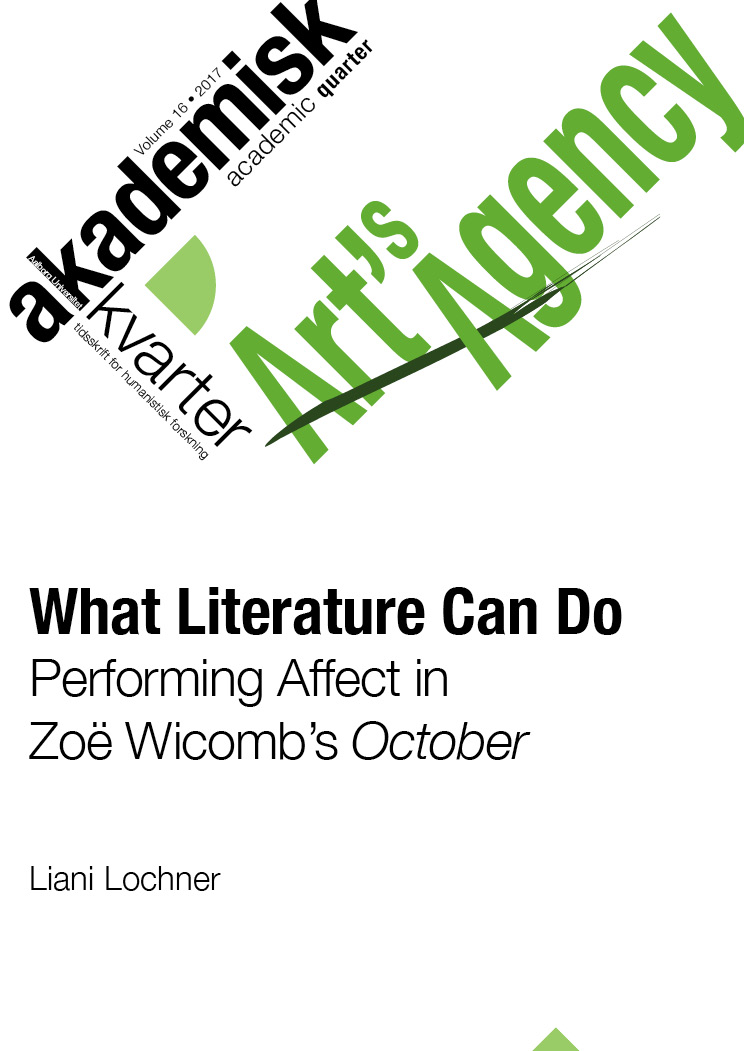Abstract | Abstract
Our affective response to works of literature, Derek Attridge argues in “Once more with feeling: art, affect and performance” (2011), is not “some mental simulacrum of affect, but a real feeling” (330) that replicates remembered experiences in the extra-literary domain. While reading, we feel these emotions “always as performances of language’s powers” (334) as we perform the literary work, bringing to life as events the “individual’s mental processes” – “the emotions, the mental and physical events, the apprehendings of the external world it depicts” (58). The affective response Zoë Wicomb’s October (2014) elicits in the reader, I argue in this essay, is also staged in the novel: like Mercia, who returns again and again to Marilynne Robinson’s Home, a novel she finds “Strangely familiar” (12), to reflect on ideas of home, her own conflicted relationship with her past in South Africa, and her present deracinated existence in Scotland, the reader of October feels the performative power of language in a novel that affectively unsettles complacent understandings of memory and belonging.
